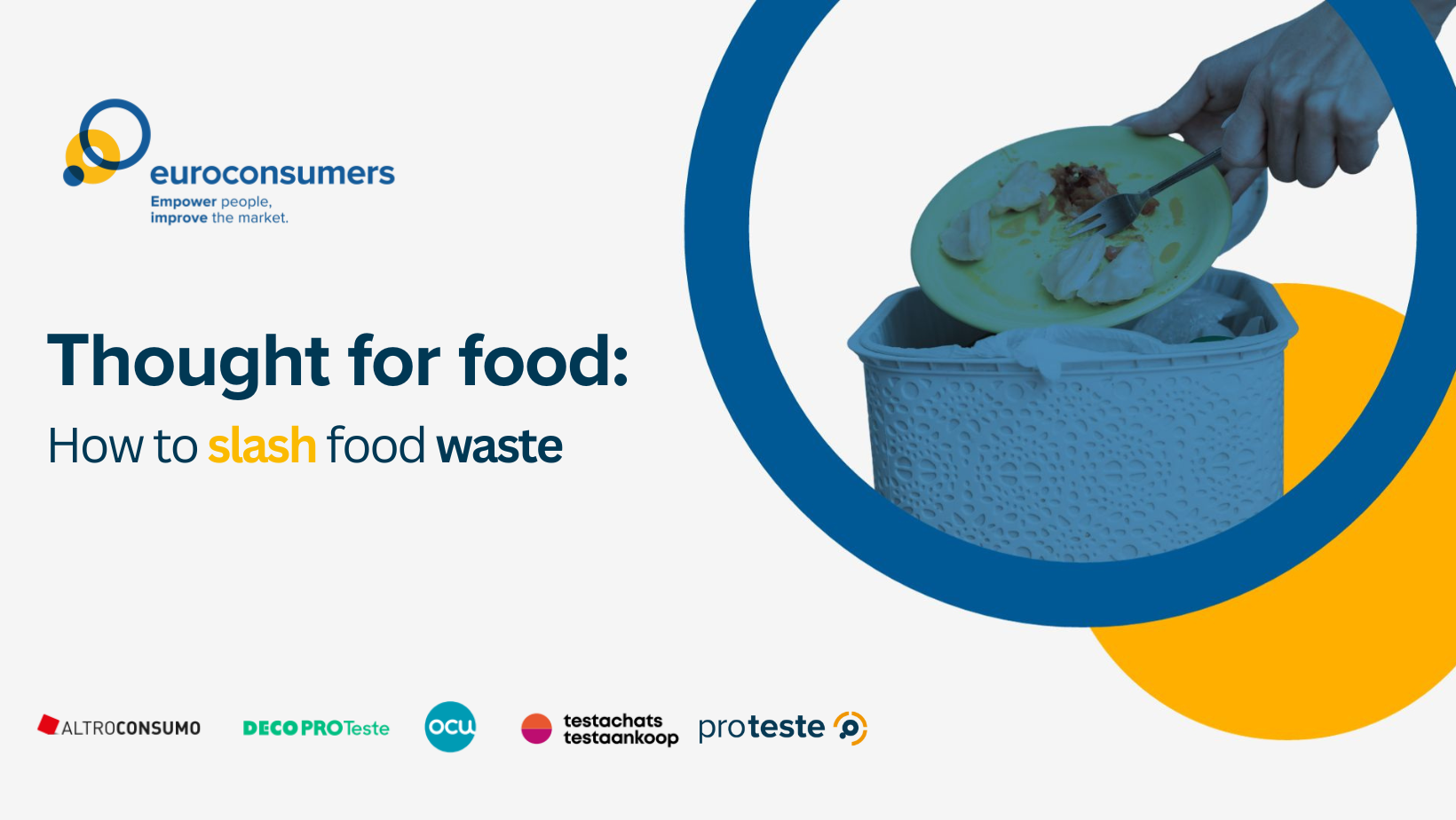This website uses cookies so that we can provide you with the best user experience possible. Cookie information is stored in your browser and performs functions such as recognising you when you return to our website and helping our team to understand which sections of the website you find most interesting and useful.
Thought for food: How to slash food waste


September 29th is the International Day of Awareness of Food Loss and Waste. While many in the world go hungry, up to 17% of food is wasted by households, retail and restaurants.
The Food and Agriculture Organization and UN Environment Programme want this global day to make consumers, producers and policy makers sit up and think about how to halt this massive waste to save money, improve nutrition and reduce pollution.
Food waste: a double hit on wallets and the environment
Looking just at the EU, almost 59 million tonnes of food, worth an estimated €132 billion are wasted each year – that’s 131 kg per head. Half of this food waste (53%) is generated by households, with the manufacturing industry responsible for 20%.
This huge amount of waste lands a double hit on wallets and the planet. Wasted food creates its own emissions once thrown away, which adds to the water, energy and biodiversity resources used to grow and produce the discarded food in the first place.
And it’s costing consumers at a time when inflation has pushed up food costs – a topic explored in our Start Talking webinar ‘The hunger games: are food prices being played?’ and around 33 million EU citizens cannot afford a proper meal every second day. Figures from Eurostat suggest that a four person household would be €400 better off every year if they reduced their food waste.
Getting date labels right
Our members have long campaigned for companies and policy makers to increase consumers’ understanding of date labels on food which is a big contributor to wasted food. A 2023 study of consumers by the Waste and Resources Action Programme found 41% of household food waste was from food that had been thrown away because it has gone off or has passed the date label. Some of this would have been unsafe or inedible food but it’s likely that much would have been perfectly fine to eat but not at its absolute best.
A use by date is about safety of food for example, indicating when food like meat or dairy should be eaten by. A ‘best before’ is about quality, it shows when a food is at its very best – but it is edible and safe to eat after this date. More public understanding is needed on date labels, plus better storage and open life advice.
Simple food hacks to reduce waste
Of course, cutting down food waste is a shared responsibility that depends on action across the food chain.
Apart from better understanding of date labeling, how else can consumers play their part in getting waste levels to a minimum and helping Europe meet its food waste reduction targets of slashing waste by 30% in retail, restaurants, households?
Our Italian member Altroconsumo and Belgian member Testachats/Test Aankoop have these top tips for consumers to try:
Shopping for food:
- Plan meals, make a list and stick to it.
- Check the fridge and pantry before you make your shopping list, to avoid buying duplicates.
- Try not to be be tempted by ‘special’ offers once you’re in the store – you might be persuaded to buy more than you need or large amounts which you can’t use in time
Food at home:
- Store food sensibly, set the fridge to +4°C to keep things fresh as long as possible, and move food set to expire to the front of the shelf
- Freeze anything – meat, fish, bread, vegetables and fruit can all be frozen for use later on.
- know the difference between ‘best before’ and ‘use by’ dates.
Eating out:
- Choose or ask for a portion size that you need
- be brave about asking to take away leftover food. Italian anti-waste laws brought in in 2016 have encouraged restaurateurs to stock recyclable containers for people to take away leftovers. The more people that ask the more it becomes a natural part of an evening out.
Food waste is everyone’s responsibility
Perhaps in the near future digital tech can help – with dynamic discounting of food in real time as it nears its expiry date. Smart labels on food which link to key data on production and waste reduction performance so consumers can reward those manufacturers who have prioritised designing out waste in the system.
Reducing consumer food waste is everyone’s responsibility but consumers’ behaviour can send a powerful message to supermarkets and restaurants that they are serious about cutting down on waste and willing to support businesses that help them do this.


